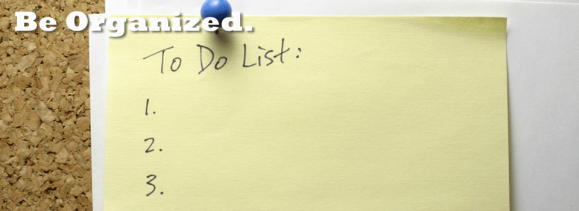
At nearly all of my speaking engagements, the audience has a chance to evaluate the session. I use a short evaluation form. Two of the five questions ask: what they got out of the session (so I know what people like) and what could be added to the session (so I can learn possible changes to make.)
The question about what attendees like has been very helpful. The question about what could be added has been less helpful because the responses have been all over the place with no consensus about topics that I might add.
After I collected hundreds of these evaluation forms, I went back and looked at them again. There was one request that had appeared more than any other—“Add something about stress management.”
At first, I wondered if I could do that because I’m not a trained therapist. I’ve read a lot of articles about stress management and thought that perhaps I could share a few of the suggestions offered in those pieces. And then it hit me. So much of what I was already talking about at my sessions—such as ways to be happier, ways to be healthier, and ways to be more organized—are helpful for stress management.
I changed my session, pointing out that stress management is important for your health and happiness, and recapping some of the habits I had already talked about in the session that would be helpful in reducing stress.
I’ll share some of these thoughts in blog posts over time. Today, I want to share how being organized helps your stress.
“Be Organized” is the fourth of the Six Simple Rules for a Better Life. While all six of the rules are near and dear to my heart (or I wouldn’t have written about them), being organized is something that has in a huge way defined me. It’s also a critical habit for my friend Rachel.
Rachel runs a 40-person office in New Jersey which lost power for 8 days due to Superstorm Sandy. I was talking with her recently about the experience and she credits being organized with her success in keeping the office afloat during the power outage and keeping her stress at a manageable level.
“We have a business continuation plan in the event something happens,” she explained to me. “We had to implement it with Sandy. Having a plan is incredibly important because when something like Sandy strikes, things become incredibly hectic. Stress levels rise for everyone. And when you have a plan in advance, instead of thinking, ‘We have no power, we have no phones, and our employees have no power at their homes, now what?’, we were able to pull out our plan and follow its steps like a recipe.
“With the stress of situation, and with emotions flying high, it was a lifesaver to be able to think rationally. We already knew what to do. We just had to do it.” As a result, Rachel’s company was able to keep up with customer requests and needs and hit the ground running when power was finally restored.
You would probably not be surprised to learn that Rachel is not only organized at work, but at home as well. Rachel says, “Being a working mom, balancing home and work, if I wasn’t organized, my stress level would be off the charts.”
She told me that she knows that the times of the most stress in her past were when she wasn’t organized, when she didn’t have a plan, when she tried to get everything done without “laying it out.” And when she slips into moments like that today, she “takes a step back, controls the emotion, and makes a plan instead of winging it.”
Rachel’s kids have learned what stresses her out and have learned how much more they like the non-stressed version of their mom. “My kids know that if the house is not organized and if the schedule is not set, mom becomes ‘crazy mom’,” she explained to me. “Before I leave in the morning,” she continued, “I tidy up so that I can come home to an organized house and my kids know that when I come home I don’t want to find basketballs in the family room or their used drinking glasses all over the place.
“My kids have also learned to keep their things in certain places so that in the morning they don’t say, ‘Mom, where are my sneakers?’ the same way that I always put my car keys in the same place. The alternative is rushing around the house, in a high level of stress.”
Rachel also explained the importance of learning from experiences—at home and at work. “The weather has caused us to execute our business continuation plan three times in the last three years. Each time, new issues seem to arise. You go through the experience and find shortfalls in your plan. We have tweaked the plan to make it better from our learning.” And that’s another great lesson from Rachel on being organized—organized people are less stressed because they have taken the time in the past to reflect on their experiences, learning from those experiences and making appropriate changes to their plans (which ties in to the fifth simple rule, “Be a Lifelong Learner”).
What are some ways that you stay organized for a better life? Join the conversation with your comments…
Best regards,
David
